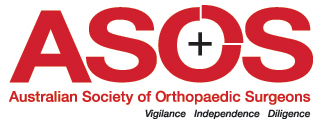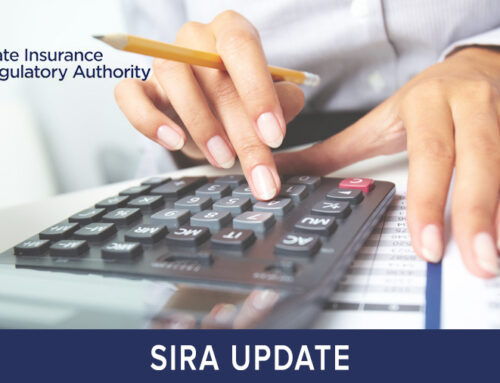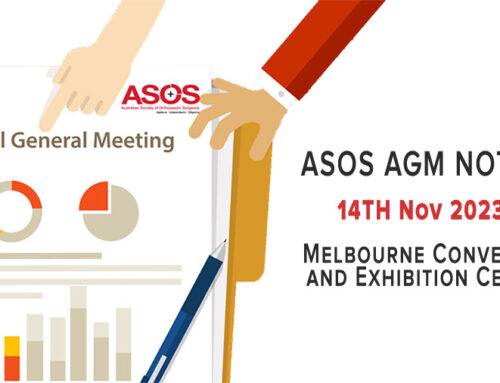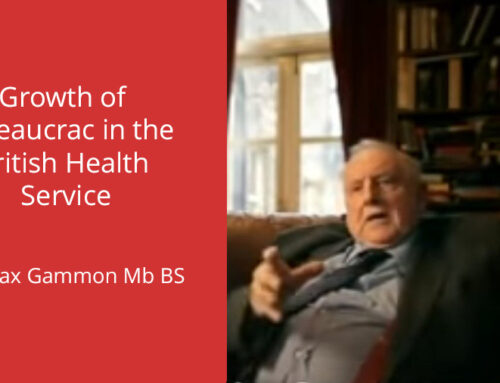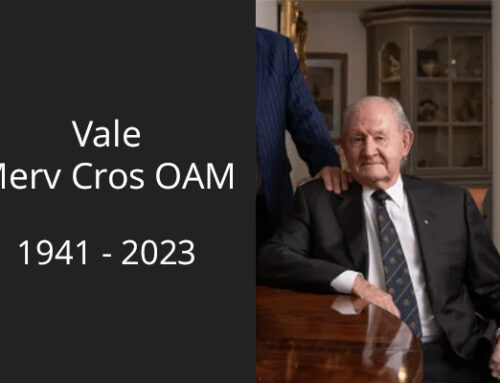By Nicki Bourlioufas
Orthopaedic surgeons are protesting against the Federal Government’s plan to cap annual work-related education expense tax deductions at $2,000 from 1 July 2015 for non-employed independent professionals.
While the Federal Government recently delayed the introduction of the self-education tax deduction cap from July 2014 until July 2015, professional groups are still concerned about its potential impact.
Chairman of the Australian Society of Orthopaedic Surgeons (ASOS), Dr Gary Speck, said that ASOS had made representations on behalf of orthopaedic surgeons, orthopaedic trainees and registrars to the Treasury, the relevant ministers and shadow ministers and had joined with the Council of Procedural Specialists (COPS) to present a joint submission calling for the cap to be scrapped entirely.
The change announced by the Federal Government in the May budget will mean an effective increase in non-claimable work-related education and training costs as high as 80% for those claiming these expenses on a personal income tax return (self-employed). Company or publicly employed professionals doing the same work will not be capped if their employer claims the expenses, however salary sacrifice arrangements for employees will also be subject to the cap.
Doctors fear this will result in a reduction in their investment in their ongoing training which is mandatorily required for ongoing registration. As with any cost increase, there are also concerns that the cap will lead to higher medical fees and charges across the health sector.
In April, the Government announced changes to limit education expenses tax deductions as part of a package of measures that will support the National Plan for School Improvement. To help pay for these reforms, the Labor Government will place a $2,000 cap on work‐related-education expense deductions from 1 July 2014.
Australia’s health professionals are joining occupational groups Australia-wide to object against the cap, saying it will provide a huge disincentive for people to invest in their ongoing education and training. The cap is inconsistent with legislation and professional codes that require health workers to hold, maintain and update their qualifications. The cap will also disadvantage patients, doctors say.
A group of professional organisations has formed the national ‘Scrap the Cap Alliance’ to protest against the cap. The alliance represents more than 60 member organisations covering more than 1.6 million professionals and says the cap will discourage people from learning and upgrading their skills and knowledge, which will undermine national productivity.
Orthopaedic surgeons and registrars are calling on the Rudd Government to abolish the proposed cap, saying it will greatly discourage investment by doctors in maintaining their skills and keeping up with best practices in medicine. They also maintain that the cap discriminates against sole practitioners and independent professionals many of whom work on the front line of healthcare.
“COPS maintains that the tax deduction cap proposal should be withdrawn in its entirety,” said Dr Gary Speck, National Chairman of the Australian Society of Orthopaedic Surgeons (ASOS) and Chairman of the Council of Procedural Specialists (COPS).
“There is no need for this blunt instrument which will result in more harm than savings. In the case of the medical profession, the greatest harm would be reducing the ability of doctors to help patients by inhibiting the development and maintenance of skills and training needed to practise safe and efficacious medicine. A poorly- or under-trained medical profession is in no-one’s interest,” Dr Speck said in a submission by COPS to Treasury.
Dr Speck said a consultant would typically spend between $15,000 and $20,000 a year on attending conferences and meeting other education expenses, and over several years, costs could easily exceed $200,000.
“COPS advises that a procedural specialist’s training costs can be substantial and over a period of several years may be in excess of $200,000. Under the cap, these training costs will effectively increase by more than 80%,” Dr Speck said in the COPS submission.
Not allowing people to claim expenses beyond the $2000 cap was unfair to doctors and other professionals who relied on their skills and knowledge to provide a service, Dr Speck said.
“Training and attending conferences are an important part of maintaining your skills as a doctor. That’s why people go to see specialists or any other professional, for the special skills they provide. If the cap is imposed, it’s a bit like saying to a bricklayer that they can’t charge for the bricks they use to build a house. Our bricks are our knowledge and training, which are an essential part of the service we provide to treat patients.”
An important part of an orthopaedic surgeon’s training involves attending conferences, which serves several purposes, doctors say.
“The first is to maintain your skills and knowledge. But it’s equally important to network with your colleagues, to gain knowledge from each other and share intellectual skills. In an informal situation, away from the conference floor, you can discover what other specialists really think about certain things which they aren’t necessarily prepared to say publicly,” Dr Speck said.
“There is also a requirement on orthopaedic surgeons to undertake continuing professional development (CPD) and part of that requirement is to attend conferences to keep up with best practice.”
Dr Stephen Doig, a Melborne-based orthopaedic surgeon, spent about $25,000 last year on education and training expenses. This is a vital investment he makes each year to make him a better surgeon. But if the cap goes ahead, it’s likely he won’t attend as many conferences.
“The policy is badly thought out. We, as a country, should be encouraging people to keep up their skills and practices, to provide better and more effective care. This proposal does exactly the opposite,” said Dr Doig.
“The cap will act as a major disincentive for medical practitioners to attend educational meetings. It will also affect other professions where keeping up to date with the latest advances is important. Although I will still attend meetings, I’ll seriously cut back on what I go to as will many other doctors,” said Dr Doig, who normally attends between two and four international and domestic conferences a year.
“Yet you learn so much at these conferences, not just by listening to papers presented, but by having dinner with colleagues or discussing work over a drink. We exchange ideas. You also learn a lot from discussions from the floor, that is, the interchange of ideas between conference attendees. If you don’t have as many people attending conferences, then you won’t get that depth of knowledge coming out of floor discussions,” he said.
“And it’s not just us. It’s lawyers, engineers and other professionals that will face the same problem.”
Dr Doig says this year’s Australian Orthopaedic Association (AOA) Annual Scientific Meeting in Darwin will cost him about $3000 to attend, including economy airfares, accommodation in a basic 1-bedroom apartment and meals. “The cost of that meeting alone is well above the cap,” he said.
Dr Aaron Buckland, President of the Australian Orthopaedic Registrars Association, has conservatively estimated the minimum cost of undertaking five years of orthopaedic training, assuming no attendance at international conferences, just domestic meetings and flying economy.
“The bill comes to a total cost of more than $120,000, which makes $2000 per year look rather insignificant,” Dr Buckland said. “A large part of our income is spent on training each year and the main problem with the cap is that it grossly underestimates what our training really costs,” he said.
A registrar’s training and education expenses include training fees, journal subscription costs, the costs of attending domestic conferences and professional meetings as well as accommodation and airfares, all of which is necessary expenditure and investment to become an orthopaedic surgeon.
“Realistically, once we add one or two international conferences or courses a year, the total cost of our training comes closer to $200,000 over five years. So you can see, a $2000 cap covers virtually none of that cost. We are then expected to complete fellowship for one to two years at the end of our training before we can gain employment. This is often unpaid, and most are completed internationally,” he said.
Dr Buckland expects the tax cap to discourage registrars from doing extra training. Instead many will undertake only the necessary minimum.
“I think the impact of the cap will be that people will do the least possible training required to get by, and no more, because they won’t be able to afford any extra. This will certainly affect the quality of the healthcare they deliver. The ethos behind this new cap goes against what the Australian medical community has tried to promote for decades, which is investment in ourselves to become the best-possible and safest clinicians we can be and delivering the best possible healthcare for our patients,” said Dr Buckland.
The cap would especially discourage registrars and orthopaedic surgeons from attending international conferences, which are important to keeping up with world’s best practice.
“International conferences are important; only in these forums can you listen to the world’s experts firsthand about best practices. This is better than hearing information second or third hand in Australia, which is what can happen since we are so far removed from developments in other countries such as the US or Europe.
“Furthermore, these meetings are the most (cost) efficient form of information gathering for surgeons, as they have access to multiple experts on one site without time pressures of practice and family,” said Dr Buckland.
Attending conferences can also mean the difference between gaining crucial knowledge, which can dramatically improve patients’ lives, and missing out on that knowledge if it isn’t widely known, said Dr Doig.
“Many of the gems of information we learn as orthopaedic surgeons come from attending conferences and listening to papers. But also by involving ourselves in discussions at conferences we come across many gems [of information]. The major problem is that when you go to a conference, you just know whether or not you’ll come across one of these little gems.
“For example, a certain type of hip, which has been a disaster, first started to be talked about [by doctors] in 2007, due to a higher-than-expected failure rate. Many people attended meetings where this was discussed. The usage rates started to decline as a result, well before the hip was withdrawn. Many patients were saved from the ongoing significant problems that this device has and continues to cause, because their treating orthopaedic surgeon went to these meetings, paid attention, and modified their practices. This free exchange of ideas will be significantly compromised by the treasurer’s proposal, and ultimately, the person who suffers will be the patient,” he said.
“The secondary damage to the Australian tourist and conference industry can only be imagined,” said Dr Doig.
According to the Institute of Chartered Accountants Australia (ICAA), the cap would create inequities between employees and self-employed individuals.
“The tax position outcome for employees whose employer pays for education expenses and self-employed individuals would be starkly different,” said ICAA’s Yasser El-Ansary, general manager of leadership and quality.
“Self-employed individuals would be denied deductions for self-education expenditure in excess of $2000 per year, yet an employer would be allowed a full deduction for the cost of education programs provided or made available to employees,” Mr El-Ansary said in a recent letter to the Treasurer.
The cap would have particularly harsh consequences against medical specialists, given so many of them are self-employed.
“Most specialists are sole practitioners for tax purposes, and we’re very open about what we claim as education deductions. Rarely are we employed by companies. Where companies often pay for the training and education of their employees, and they can write it off against their income as a business expense, sole traders do not have this ability under this cap,” said Dr Buckland.
“This new cap is clearly discriminatory against those practitioners who are self-employed and paying for their own education and training costs,” he said.
Dr Speck, in the COPS submission to Treasury, said the proposed cap will be seen by many as a direct attack on the education, training and maintenance of skills of all doctors who are self-employed.
“This includes the considerable number of sole practitioners who are the backbone of rural medical practice and private practice across all professions and business enterprises,” he said.
The fees charged by orthopaedic surgeons would probably rise by about 4 per cent if the cap went ahead.
“We’ve always had to balance the budget so if the cap is imposed, it will probably result in higher fees, somewhere around 4 per cent. My training takes up about 4 to 5 per cent of my gross fees so I’ll have to recoup some of that charge from patients in future.”
Other orthopaedic surgeons agreed. “The most obvious unintended consequence of these proposed reforms will be an increase in fees, where I will have to charge people more in order to make up the difference of the tax deductible component,” said Dr Hargreaves.
“Currently, for me this would involve approximately a 4 per cent across the board increase in fees to all private patients, to cover the non-deductible component. This is assuming that bodies such as Workcover and Medicare do not increase their reimbursements significantly,” he said.
Orthopaedic surgeons say they have high fixed costs, including rental costs, staffing and insurance costs. Attending conferences results in a loss of income, which well exceeds the cost of attending conferences.
Hence, decisions to attend conferences are not taken lightly even if they are fully tax deductible.
“Such attendances involve an increased workload both prior to and on return from any conference, seminar or course, and may also involve the employment of locums. Practice costs including rent, salaries and other fixed overheads continue in the absence of the principle income earner of the practice,” said Dr Speck in the COPS submission.
“I lose out on a significant amount of income by attending conferences but I still pay the money and go because it is important. My practice still has expenses even though I’m not earning income,” said Dr Doig.
“Of course orthopaedic surgeons will put up their fees because they will be out of pocket by these changes. Doctors’ out-of-pocket education and training expenses will double.”
ASOS has told members that it will continue to demand on behalf of its members “that the cap should be scrapped, not modified but scrapped in its entirety.”
